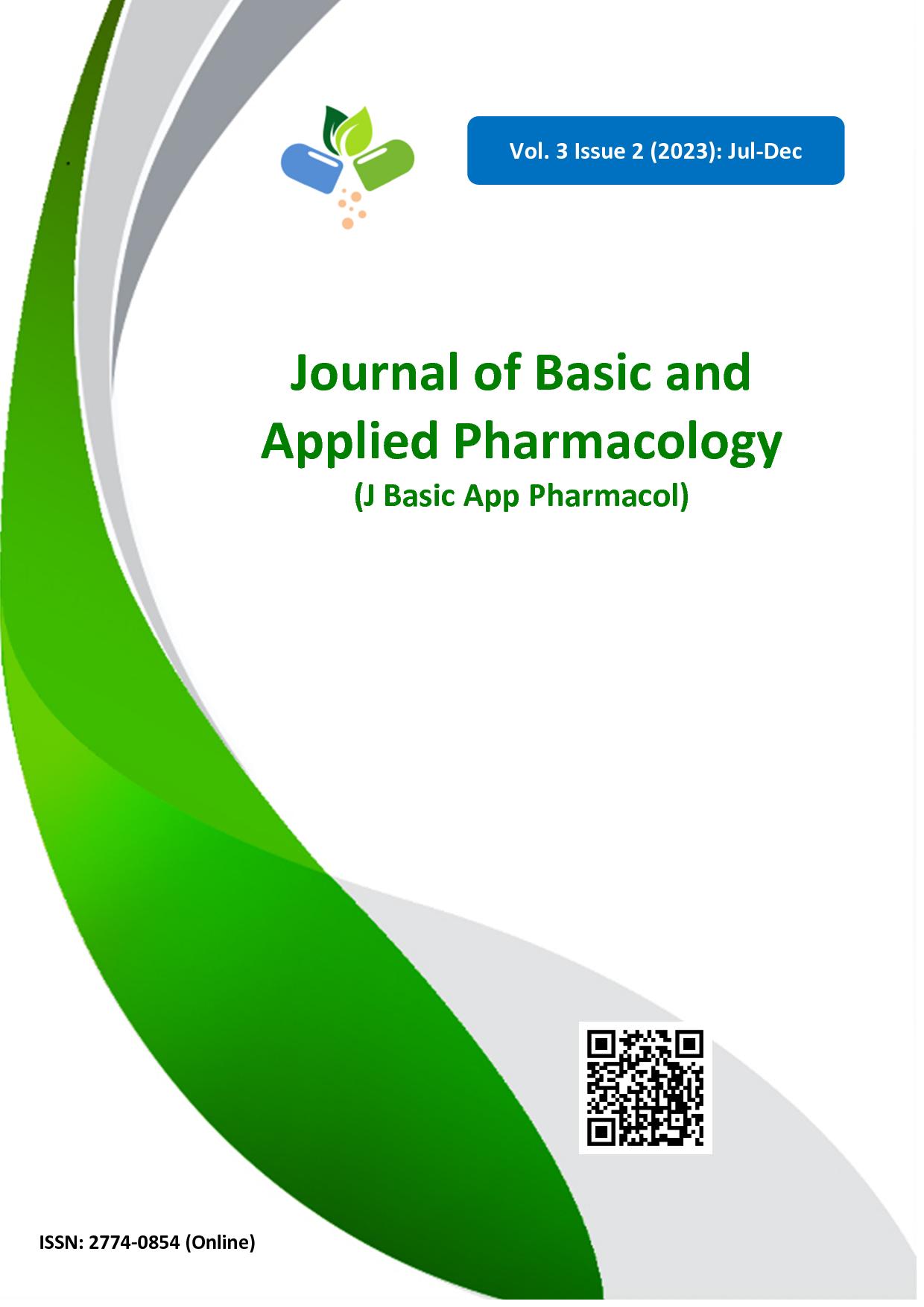The Efficacy of Albumen from Different Egg Sources to Generate Thermally Denatured Protein and Their IC50 in An Anti-Inflammatory Assay
Main Article Content
Abstract
Hen egg albumen is commonly used for in vitro anti-inflammatory assay by thermal protein denaturation. There are many sources of albumen such as from eggs of quail, pigeon, hen, duck, goose, and crocodile. Thus, this study aims to investigate alternative sources of albumen that can be used for this assay. Albumen specimens collected from quail, pigeon, hen, duck, goose, and crocodile eggs were employed for investigating protein denaturation by turbid formation after 5 min incubation at 70ºC and 85ºC, following standard protocol. The amount of protein of each albumen was determined spectrophotometrically at 280 nm using bovine serum albumin as standard protein. Then, albumen exhibiting a turbidity response similar to that of hen egg albumen was selected to determine anti-inflammatory activity using diclofenac sodium as a positive control. Our results show that only quail egg albumen became turbid after being heated at 70oC for 5 min in a way similar to hen albumen, with absorbance values of 1.341 ± 0.006 and 1.134 ± 0.016 Absorbance units (AU), respectively. The other egg albumen specimens showed low turbidity values of between 0.013-0.175 AU. After increasing the incubation temperature to 85oC, the turbidity of quail, duck, and goose egg albumen specimens was increased. The least amount of protein was evident for crocodile egg albumen (5.64 ± 0.39 mg/0.2 ml of albumen), while the other sources contained 26.4-31.7 mg/0.2 ml of albumen. There was no relation found between the turbidity and amount of protein except for crocodile egg albumen. The IC50 values for hen and quail egg albumens were 1092 and 625 µg/ml, respectively. This indicated that quail egg albumen exhibited higher sensitivity for thermal protein denaturation than hen egg albumen. We propose that quail egg albumen, which is inexpensive and available in some countries, may be used instead of hen egg albumen for in vitro anti-inflammatory activity assay using the thermal protein denaturation inhibition technique.
Article Details

This work is licensed under a Creative Commons Attribution-NonCommercial-NoDerivatives 4.0 International License.
Upon acceptance of an article, the Pharmacological and Therapeutic Society of Thailand will have exclusive right to publish and distribute the article in all forms and media and grant rights to others. Authors have rights to use and share their own published articles.
References
Patil KR, Mahajan UB, Unger BS, Goyal SN, Belemkar S, Surana SJ, et al. Animal models of inflammation for screening of anti-inflammatory drugs: implications for the discovery and development of phyto-pharmaceuticals. Int J Mol Sci. 2019;20(18):4367.
Chandra S, Chatterjee P, Dey P, Bhattacharya S. Evaluation of in vitro anti-inflammatory activity of coffee against the denaturation of protein. Asian Pac J Trop Biomed. 2012;2(1):S178-S180.
Leelaprakash G, Dass SM. In vitro anti-inflammatory activity of methanol extract of Enicostemma axillare. Int J Drug Dev Res. 2011;3(3):189-196.
Reshma, Arun KP, Brindha P. In vitro anti-inflammatory, antioxidant and nephroprotective studies on leaves of Aegel marmelos and Ocimum sanctum. Asian J Pharm Clin Res. 2014;7(4):121-129.
Dharmadeva S, Galgamuwa LS, Prasadinie C, Kumarasinghe N. In vitro anti-inflammatory activity of Ficus racemosa L. bark using albumin denaturation method. Ayu. 2018;39(4):239-242.
Hasan AUH. Evaluation of in vitro and in vivo therapeutic efficacy of Ribes alpestre Decne in Rheumatoid arthritis. Braz J Pharm Sci. 2019;55:e17832.
Arif Ullah HM, Zaman S, Juhara F, Akter L, Tareq SM, Masum EH, Bhattacharjee R. Evaluation of antinociceptive, in-vivo & in-vitro anti-inflammatory activity of ethanolic extract of Curcuma zedoaria rhizome. BMC Complement Altern Med. 2014;14:346.
Sunwoo HH, Gujral N. Handbook of Food Chemistry. In: B.M. Mehta, editors. Heidelberg: Springer-Verlag Berlin; 2015. p.338-345.
Bureau of Nutrition, Department of Health, Ministry of Public Health. Food composition table of Thai foods. Bangkok: The Printing Office to assist veterans organization; 2018. p.77-82.
Congjiao S, Junnian L, Ning Y, Guiyun X. Egg quality and egg albumen property of domestic chicken, duck, goose, turkey, quail, and pigeon. Poult Sci. 2019;98(10):4516-4521.
Stefanova IL, Klimenkova AY, Shakhnazarova LV, Mazo VK. Chicken albumen characteristics of its properties for and the prospects for functional foods development. Theor Pract Meat Processing. 2021;6(2):163-173.
Quan TH, Benjakul S. Duck egg albumen: physicochemical and functional properties as affected by storage and processing. J Food Sci Technol. 2019;56(3):1104-1115.
Sangeetha G, Vidhya R. In vitro anti-inflammatory activity of different parts of Pedalium murex (L.). Int J Herb Med. 2016;4(3): 31-36.
Alhakmani F, Kumar S, Khan SA. Estimation of total phenolic content, in-vitro antioxidant and anti-inflammatory activity of flowers of Moringa oleifera. Asian Pac J Trop Biomed. 2013;3(8):623-627.
Seideman WE, Cotterill OJ, Funk E M. Factors affecting heat coagulation of albumen. Poult Sci. 1963;42(2):406-417.
Hitachi High-Tech Science Corporation. Thermal denaturation of Protein I: The effect of salt and sugar additive and pH. Application Brief TA 1986;31:1-3.
Strixner T, Kulozik U. Egg protein, In: G.O. Phillips, P.A. Williamsin, editors. Handbook of Food Proteins. Woodhead Publishing Limited; 2011. p.150-209.


